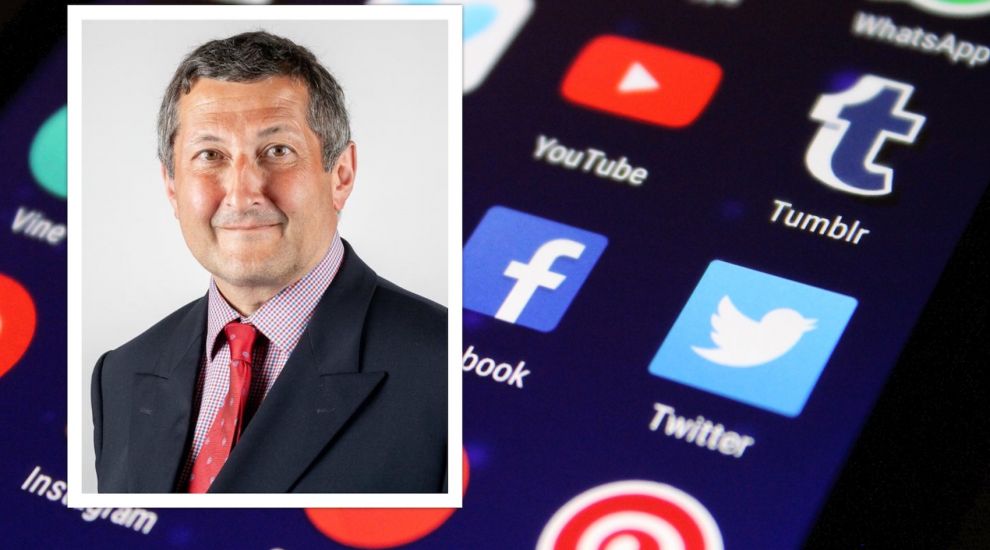


Perhaps Deputy Lindsay Ash was looking over at Guernsey when he decided to double-down on his controversial tweet.
In case you missed it, over the water, Deputy Chris Le Tissier has been suspended from his political party following a Bailiwick Express investigation which showed he was the man behind some anonymous social media accounts which he created, and then used to make comments about the ability of his colleagues being linked to whether they were ‘local’ or ‘non-local'.
And then this week, Deputy Ash – an Assistant Minister - picked International Womens’ Day to publicly poke fun at a woman for her appearance: in his view, looking like a man in drag.
Stripping this issue down to the bare bones, that’s it. He argued it was a joke, and has since doubled down, only apologising to those who have “chosen” to take offence, and then today, firing shots at “lazy journalism.”
His supporters have wheeled out the allegations of “woke snowflakes,” and claimed “freedom of speech!”
This Harry and Megan interview seems to have caused a bit of a furore , what baffles me is why Ian Wright dressed up as Mrs Doubtfire to do it. pic.twitter.com/budI4ewp3F
— LINDSAY ASH (@Getonthelash2) March 8, 2021
But the real issue is this. Deputy Ash is a formal representative of our Government, and speaking publicly (yes, that incudes social media) he has issued a derogatory personal comment. Whether you find it funny or not, doesn’t matter. It really isn’t a defence to say afterwards, “only joking!”
Whether it is about an international celebrity, or not, doesn’t matter. Would you feel differently if he had made the same comment about a local female politician?
Whether you disagree that it was racist or misogynistic, doesn’t matter. In his own words, at the very least it is an “observation” on “2 (sic) people’s looks” which “may be harsh.”
The question is really this: is that the sort of public conduct we should expect from our elected Government representatives?
Ironically, it comes at the time this Government is considering guidelines to address social media abuse. Surely those guidelines will remind those elected to public office that they have a duty to set an example?

Pictured: Deputy Inna Gardiner recently made public an example of how derogatory online comments can escalate
What Deputy Ash has done – both through the tweet itself, but much more so through his subsequent handling of the reaction - is the following: he has promoted the view that it is acceptable to put derogatory personal comments on social media, as long as you later claim it was a joke. Schools across the island will be busy now correcting that, in their next assembly on online harms.
He has prompted another wave of “woke snowflake” allegations (see the comments on many Facebook posts on this subject) to be directed at young people – who really do have a lot of other issues to contend with just at the moment, with the second year of educational disruption from covid. Surely we don’t want to make it less likely for them to ask for support?
He has promoted yet further misinterpretation of the protections offered under the term ‘freedom of expression’ - it is NOT the absolute right to say anything you like, whenever you like, to whoever you like, without any sanction.
He has prompted further denigration of the local media, who already have to deal with online abuse most days – in the last year alone, I have had to involve the Police on two occasions following threats of serious harm made online against my CI team.
The point here is that words really matter, particularly when they are issued publicly by a member of the government.

Pictured: the Government is currently working on guidelines to reduce social media abuse.
The conversations which take place now on social media are no different to the ones which have always taken place in bars, coffee shops, restaurants and private homes. The difference now is that we can all hear them, and because of that, they have implications, and shape behaviours, which ripple out from the source, in a way which never really happened before - certainly at the same speed.
People read them, take part in them, comment on them - and, either consciously or not, their understanding of what is acceptable, of how they can act, shifts.
Young people understand this; they have been taught very comprehensively in our schools about the pros and cons of internet-based communication.
This is a tense time for our whole community - the issue of online harm itself is at a very sensitive point, as we set guidelines, and define boundaries, around what is arguably the most powerful tool ever created.
The debate is essentially how we keep it as a tool, and restrict its mutation into a weapon.